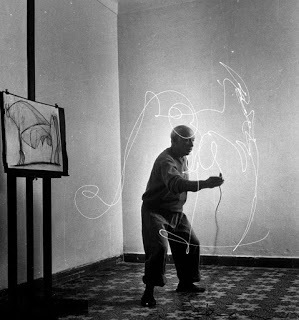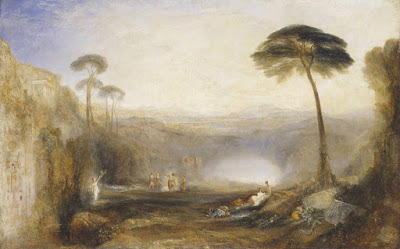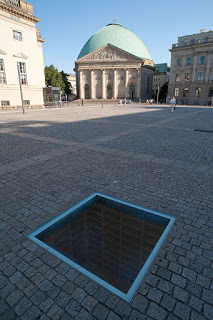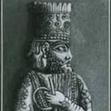Thomas Yaeger's Blog, page 19
November 21, 2016
Camera Obscura: Aristotle, Marx, and Ptolemy

This text constitutes the introduction to an essay I wrote for a university competition in 1992. The essay was titled: Mirrors of the Divine, and subtitled Aristotle's Teleological Model of the World and the Interpretation of Ancient History. The main part of the essay was built on three pieces of text I'd written during my course.
The first of these texts looked at the origins, definition and significance of the Polis within the Greek model of the world.
The second part looked at t...
Published on November 21, 2016 14:05
November 10, 2016
These are the ten most read articles during the past mont...

These are the ten most read articles during the past month (October 11 - November 10, 2016). Three of them were posted in September and October 2016. Nine of these articles deal with the categories of understanding we bring to bear on ancient cultural ideas. These categories have a huge bearing on our capacity to understand what we are looking at.
'Shar Kishati' and the Cult of Eternity.There is no dispute that there was a concept of eternity in antiquity, long before the Greeks. But if we don...
Published on November 10, 2016 07:00
Map and Territory: Representing Ancient Thought

These are the ten most read articles during the past month (October 11 - November 10, 2016). Three of them were posted in September and October 2016. Nine of these articles deal with the categories of understanding we bring to bear on ancient cultural ideas. These categories have a huge bearing on our capacity to understand what we are looking at.
'Shar Kishati' and the Cult of Eternity.There is no dispute that there was a concept of eternity in antiquity, long before the Greeks. But if we don...
Published on November 10, 2016 07:00
October 21, 2016
A Berlin Conversation (Part One)

An extract from the book Destroy Nineveh! Wiping Out the Past (forthcoming, 2017). The conversations in the book concern how we often contribute to the destruction of the past through the means by which we try to make sense of it. The conversations are set between 2001 and 2016, in and around Berlin. The book is in six parts, and three extracts are available via this blog.
TY, October 21 2016.
***
A seminar room at Humboldt University in Berlin, less than ten days after the att...
Published on October 21, 2016 09:38
October 20, 2016
Plato's Point of View (and why we think he doesn't have one)
One of the greatest barriers to the understanding of Plato is that he is writing from a perspective quite different from our own. I say ‘our own’, because this perspective can be clearly defined as something which we, in our cultural continuum, implicitly accept (even if a number of individuals in that culture don’t). That is, we assume that what is real is what is physical. So when Plato was writing about what is metaphysical rather than the physical, he was writing about something extra, so...
Published on October 20, 2016 10:12
Rewriting the History of the Human Mind: J.G. Frazer and the Platonic Theory of Being
(Notes on J.G. Frazer and the Platonic Theory of Being)
The argument of the book is quite technical, but it is easy to explain the nature of the argument, and why I came to write it.
I studied ancient history and languages at UCL as a mature student in the early 1990s. Before deciding to study ancient history, I had a long standing interest in both art and philosophy, and in the art and thought of the European renaissance. I read the two volume edition of Frazer’s Golden Bough in 1987, a...
Published on October 20, 2016 06:53
Rewriting the History of the Human Mind
(Notes on J.G. Frazer and the Platonic Theory of Being)
The argument of the book is quite technical, but it is easy to explain the nature of the argument, and why I came to write it.
I studied ancient history and languages at UCL as a mature student in the early 1990s. Before deciding to study ancient history, I had a long standing interest in both art and philosophy, and in the art and thought of the European renaissance. I read the two volume edition of Frazer’s Golden Bough in 1987, a...
Published on October 20, 2016 06:53
October 17, 2016
'Shar Kishati' and The Cult of Eternity
This is part of a chapter from the draft of The Sacred History of Being which was under way in 2004. The chapter did not make it through to the final version which was published in November 2015, though I did write about the same things in the published version, in slightly different terms. I had moved on considerably in those eleven years.
Trying to separate out key aspects of Greek and Mesopotamian models of Reality, as I did here, was something of a methodological conceit, and the dis...
Trying to separate out key aspects of Greek and Mesopotamian models of Reality, as I did here, was something of a methodological conceit, and the dis...
Published on October 17, 2016 11:34
September 23, 2016
Remarks on the Telos (and other lost ideas)
There are many ideas from both the ancient world and from much more recent times which have died a death, so that it is virtually impossible for us to understand these concepts, even within their original contexts. Not all of these ideas are of equal value – some reflect only minor aspects of the world view of their time, or illustrate some particular application of a way of thinking in a single culture or place. Others however are of vital importance, not only for an understanding of the fun...
Published on September 23, 2016 09:10
September 22, 2016
Philosophizing with a Hammer
Yesterday's post and page views on this blog. Physics and the Origins of the Universe (1) has a life of its own, whether or not I tweet it. This is also true for Teotihuacan and the River of Mercury.
Understanding Ancient Religion: Cultural Parallels and False Narratives solves a problem which has been outstanding (and largely invisible) since Augustine.
A Berlin Conversation (parts two and three) are new, and address how we understand the past, and are sometimes complicit in its destruction,...
Understanding Ancient Religion: Cultural Parallels and False Narratives solves a problem which has been outstanding (and largely invisible) since Augustine.
A Berlin Conversation (parts two and three) are new, and address how we understand the past, and are sometimes complicit in its destruction,...
Published on September 22, 2016 03:12



